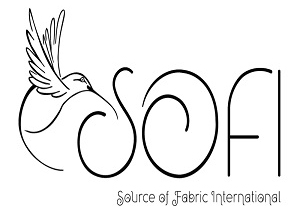Denim fabric has become a staple in wardrobes around the world, synonymous with style and durability. As the demand for high-quality denim continues to rise, wholesale options offer a lucrative opportunity for retailers and designers alike. By sourcing denim in bulk, businesses can access a diverse range of colors, textures, and weights, making it easier to create unique and fashionable pieces.
In the competitive fashion industry, understanding the nuances of denim fabric wholesale can set brands apart. Whether it’s for casual wear, high fashion, or sustainable collections, knowing where to find the right suppliers and how to negotiate pricing is crucial. This article explores the ins and outs of denim fabric wholesale, providing valuable insights for anyone looking to thrive in this dynamic market.
Overview Of Denim Fabric Wholesale
Denim fabric wholesale offers retailers and designers access to a wide selection of materials at competitive prices. Wholesale suppliers typically provide various types of denim, including different weights, colors, and finishes, making it easier to meet diverse customer needs.
Understanding the benefits of denim fabric wholesale is essential for success in the fashion industry. Buying in bulk lowers costs, which increases profit margins. Retailers enjoy the ability to purchase large quantities of denim, ensuring they have enough stock to meet customer demand without frequent reordering.
Finding reliable suppliers is crucial. Retailers often evaluate suppliers based on product quality, pricing, and delivery times. Building strong relationships with suppliers can lead to better deals and exclusive options, enhancing brand offerings.
Negotiating prices can also yield significant savings. Retailers commonly request quotes from multiple suppliers, allowing them to compare options and secure the best deals. This approach not only improves purchasing power but also strengthens business networks.
Staying informed about trends in denim fabric types and finishes helps retailers stay competitive. They need to watch for shifts in consumer preferences to adapt their offerings accordingly. Accessing up-to-date market information is beneficial for making informed purchasing wholesale fabric decisions.
Types Of Denim Fabrics
Different types of denim fabrics cater to various needs in the fashion industry. Understanding these types helps retailers and designers select the right options for their collections.
Raw Denim
Raw denim, also known as dry denim, remains untreated after weaving. It features a stiff texture and deep indigo color. Raw denim develops unique fades and character over time as it is worn. Many enthusiasts prefer this type for its ability to mold to the wearer’s body and create a personalized look.
Selvedge Denim
Selvedge denim is woven on traditional shuttle looms. This technique produces a tightly woven edge, preventing fraying. Usually thicker and more durable, selvedge denim offers a premium feel. The finished edge is often visible in jeans, enhancing their visual appeal. Many brands highlight this feature to attract quality-conscious consumers.
Stretch Denim
Stretch denim includes a blend of cotton and elastic fibers, typically spandex or elastane. This type delivers comfort and flexibility, making it ideal for fitted styles. Stretch denim retains its shape well after wear, ensuring a flattering fit throughout the day. Retailers often stock various colors and washes to appeal to diverse preferences.
Benefits Of Buying Denim Fabric Wholesale
Buying denim fabric wholesale offers numerous advantages for retailers and designers, primarily focusing on cost savings and a wide range of options.
Cost Efficiency
Purchasing denim fabric in bulk reduces costs significantly. Retailers benefit from lower prices per yard compared to smaller orders. This price reduction boosts profit margins, allowing retailers to reinvest in their business. Bulk buying also minimizes the risk of stockouts, ensuring that businesses can meet customer demand. For example, buying 500 yards of denim fabric often costs less than ordering five separate orders of 100 yards.
Variety And Selection
Wholesale suppliers provide a wide variety of denim fabrics, including different colors, textures, and weights. Access to numerous options allows retailers to cater to diverse consumer preferences. For instance, a supplier might offer raw denim, selvedge denim, and stretch denim, allowing retailers to create a well-rounded inventory. This diversity helps brands stand out in a competitive market and appeal to a broader customer base. Retailers can choose specific types of denim to meet trends and demands, enabling them to adapt quickly in the fashion industry.
How To Choose A Denim Fabric Supplier
Choosing a denim fabric supplier involves careful consideration of several factors that affect both quality and service. Retailers and designers benefit from a structured approach to finding reliable partners in the denim supply chain.
Quality Assurance
Quality assurance starts with evaluating the fabric. Look for suppliers who provide samples to assess the feel, durability, and appearance of the denim. Check if the supplier follows industry standards and testing methods for fabric strength and colorfastness. Certification from recognized organizations can indicate a commitment to quality. Regular feedback from other clients can also offer insights into the supplier’s reliability regarding product consistency.
Shipping And Logistics
Shipping and logistics play a crucial role in the supply process. Confirm the supplier’s shipping methods, timelines, and costs. Fast shipping can help maintain stock levels and meet customer demands promptly. Suppliers should offer a clear policy on returns and exchanges in case of defects or errors in order fabric wholesale. Tracking options add transparency to the shipping process, ensuring that retailers stay informed about their shipments.
Market Trends In Denim Fabric Wholesale
The denim fabric wholesale market is changing due to consumer demand and new technologies. Retailers must stay aware of these trends to remain competitive.
Sustainable Practices
Sustainable practices are becoming more important in the denim industry. Many consumers prefer products made from eco-friendly materials. Brands are using organic cotton and recycling old denim to create new fabrics. This reduces waste and lessens environmental impact. Suppliers who focus on sustainability often attract more buyers and help businesses meet consumer expectations.
Innovations In Denim
Innovations in denim continue to shape the market. Advanced technologies enable the production of fabrics that are lighter and more durable. Brands are experimenting with features like moisture-wicking and UV protection. Stretch denim has also seen improvements, offering better comfort and fit. These innovations help retailers provide unique products that meet diverse consumer needs while differentiating themselves in a crowded marketplace.
Conclusion
Navigating the world of denim fabric wholesale presents exciting opportunities for retailers and designers. By understanding the nuances of sourcing high-quality denim, they can effectively differentiate their brands in a competitive market.
The emphasis on sustainable practices and innovative fabric wholesale direct legit technologies is reshaping consumer preferences, making it essential for businesses to stay ahead of trends. Building strong relationships with reliable suppliers and negotiating favorable terms can lead to significant advantages.
Ultimately, embracing the versatility and appeal of denim will empower brands to meet diverse customer demands while ensuring long-term success in the fashion industry.
Frequently Asked Questions
What is denim fabric, and why is it popular in the fashion industry?
Denim fabric is a sturdy cotton twill textile known for its durability and versatility. Its popularity in fashion stems from its stylish appearance, comfort, and ability to be dressed up or down. Denim’s timeless appeal, combined with ongoing trends and innovations, keeps it a staple in wardrobes worldwide.
What are the benefits of sourcing denim fabric wholesale?
Sourcing denim fabric wholesale allows retailers to purchase large quantities at reduced prices, which improves profit margins. It provides access to a variety of colors, textures, and weights, enabling brands to cater to diverse consumer preferences and adapt to market trends.
How can retailers choose the right denim fabric supplier?
Retailers should evaluate potential suppliers by assessing fabric samples for quality, feel, and durability. It’s vital to ensure that suppliers adhere to industry standards and provide clear information on shipping, pricing, and return policies to maintain quality and reliability.
What types of denim fabrics are available for retailers?
There are several types of denim fabrics, including raw denim known for its rigid texture, selvedge denim prized for its durability, and stretch denim that blends cotton with elastic fibers for comfort. Each type caters to different consumer needs and trends in the fashion industry.
Why is sustainability important in denim fabric sourcing?
Sustainability is increasingly vital as consumers prefer eco-friendly materials. Brands are now using organic cotton and recycling old denim to create a more sustainable product. Adopting sustainable practices not only meets consumer demands but also helps brands differentiate themselves in a competitive market.
What are the current market trends in denim fabrics?
Current market trends in denim fabrics include the rise of sustainable and innovative designs, such as lighter, durable fabrics with moisture-wicking and UV protection features. Retailers are adapting to these trends to meet changing consumer preferences and stand out in a crowded marketplace.


